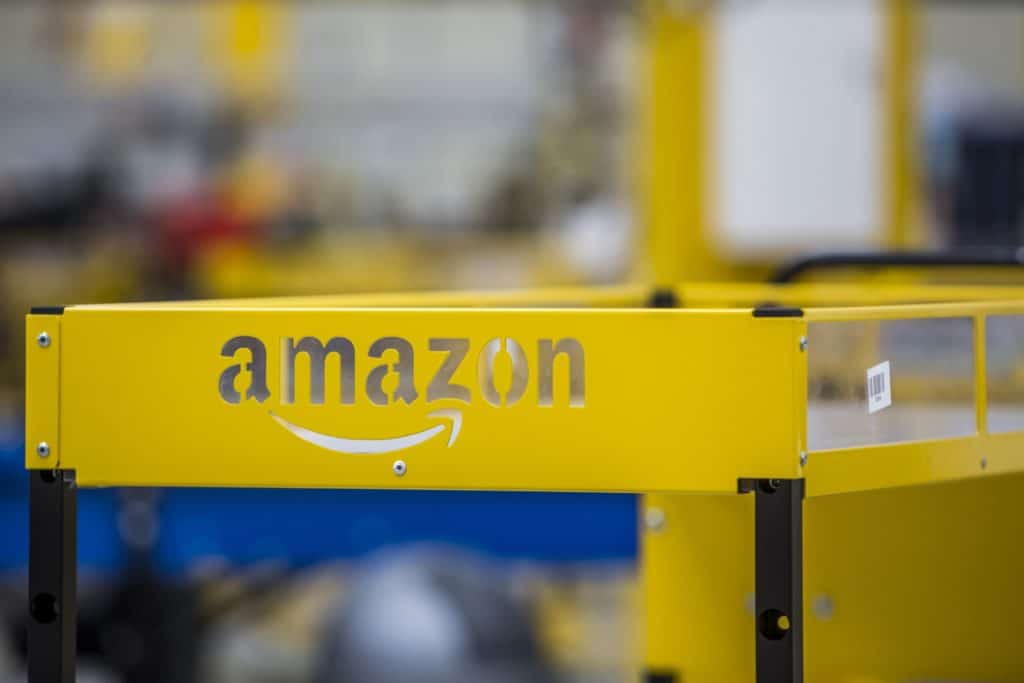Amazon.com Inc. said it would buy IRobot Corp., maker of the Roomba vacuum, for $1.65 billion as the e-commerce giant continues its push into internet-connected home devices and robotics.

Amazon will pay $61 a share in cash for the Bedford, Massachusetts-based company, according to a statement on. The offer, valued at $1.7 billion including debt, represents a premium of 22 percent based on iRobot’s last closing price before the announcement. Colin Angle will remain as chief executive officer of IRobot.
The deal arrives just two weeks after Amazon said it was buying up a chain of doctor’s offices and suggests Amazon is forging ahead with acquisitions despite growing scrutiny of Amazon’s market power from antitrust regulators in the US and Europe.
Seattle-based Amazon has come a long way as a hardware player since a failed foray into smartphones a few years ago, working diligently to place the Alexa voice software and Echo smart speakers at the center of the burgeoning market for smart-home gadgets. Spoken Alexa commands can already control many other devices, from smart ovens to light bulbs and Roomba vacuums. The partnership between Amazon and IRobot extended beyond devices, too: IRobot runs some of its software on Amazon Web Services servers.
IRobot gives Amazon a household-name in home cleaning gadgets that may give it a leg up over its own designs. Last fall Amazon debuted a household robot that was supposed to usher in—or at least point to—a Jetsons-like future. Called the Astro, the three-wheeled device would eventually sell for about $1,450. But Astro, still in a limited rollout, hasn’t made a splash with consumers.
IRobot saw sales increase over the pandemic, as families who were housebound sought shortcuts to keep their homes clean. But like many pandemic-era darlings, iRobot has seen demand wane. It reported second-quarter revenue of $255.4 million, short of analysts’ expectations for $301 million. The company has also been battling JS Global Lifestyle Co. in a patent infringement case against its SharkNinja vacuums and hybrid vacuum-moppers. IRobot portrays itself as an American success story with a “passion for innovation” that’s been undercut by SharkNinja incorporating those inventions into its Chinese-made knockoffs.
IRobot says its Roomba vacuum and Braava floor mops “can map the floor of a home, sense changes in the floor type being cleaned, spot clean, avoid objects and cliffs (such as stairs), and intelligently approach a base station to recharge, among other innovative features.”
Amazon prefers to develop new technology internally, but its devices unit has been quick in recent years to pull the trigger on acquisitions that give the company a stake in a hot or adjacent market. Amazon grabbed a leading position in video doorbells with its 2018 deal to buy Ring, and acquired WiFi hub maker Eero the next year.
“I’m excited to work with the iRobot team to invent in ways that make customers’ lives easier and more enjoyable,” said Dave Limp, senior vice president of Amazon Devices.
Some close watchers of the company have speculated that antitrust scrutiny might nudge Amazon Chief Executive Officer Andy Jassy to take a pause on large deals. IRobot would be the fourth-largest acquisition by Amazon, ranking behind its acquisition of Whole Foods for $13.7 billion in 2017, the $8.5 billion purchase of movie studio MGM in March and last month’s agreement to buy 1Life Healthcare for $3.49 billion. The string of deals suggests the company seems to be doing business as usual.
The Biden administration is ramping up scrutiny of deals by technology giants. The US Federal Trade Commission has been looking at Amazon since 2019 over antitrust concerns with its retail business and cloud computing services. Lina Khan, who became chair of the agency last year, had made a name for herself with a groundbreaking legal paper into Amazon’s potential antitrust violations and has taken a personal interest in the probe. The FTC is ramping up that investigation under Khan, shaking up the investigative team, re-interviewing potential witnesses and asking about Amazon’s recent acquisition of MGM Studios, Bloomberg has reported.
Seeking to assuage concerns that Amazon would use the deal to muscle out iRobot rivals, an Amazon spokesperson said that the company would continue to supply retailers with iRobot products and sell competing devices on Amazon’s retail websites. Following Amazon’s other big deal for a self-driving robots — the 2012 acquisition of industrial bot builder Kiva Systems — the company stopped selling the devices to other companies, using them exclusively to supply Amazon’s own warehouses.
The spokesperson also said Amazon had no plans to cut off other voice assistants from iRobot’s line of products. Roomba owners today can issue commands to their vacuums from software made by Amazon rivals Alphabet Inc. and Apple Inc.
Goldman Sachs Group Inc. advised Amazon and Qatalyst Partners advised iRobot.



